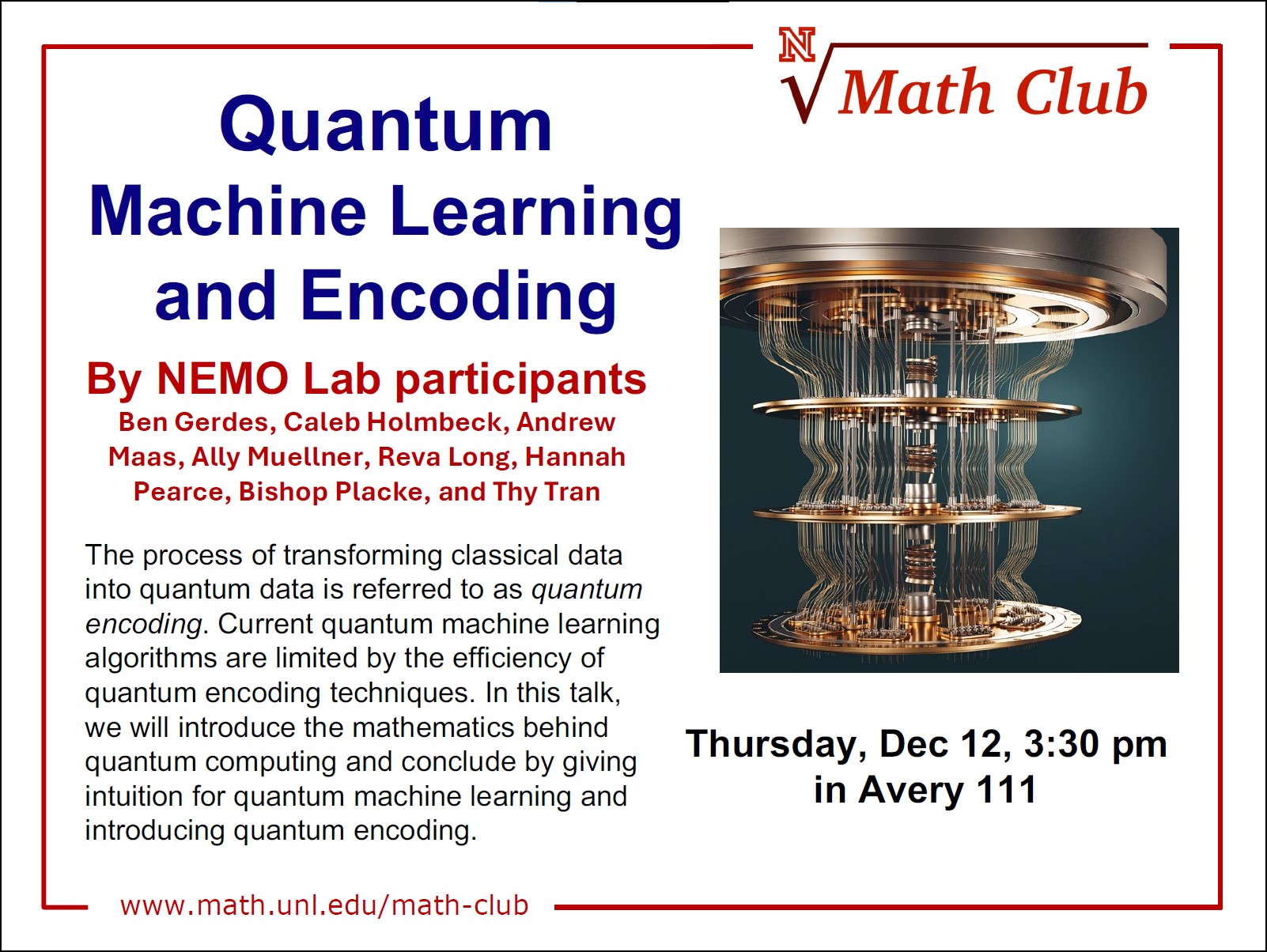
Upcoming Math Club Event on December 12th!
The NEMO Lab is an undergraduate research and experiential learning hub in mathematics. This week we have a presentation by the participants in the Fall 2024 NEMO Lab project led by Dr. Levi Heath. Everyone is welcome to attend and cheer them on.
Thursday, December 12th, 3:30-4:30 pm in 111 Avery Hall and on Zoom
NEMO Lab Presentation: Quantum Machine Learning and Encoding
Presented by Ben Gerdes, Caleb Holmbeck, Andrew Maas, Ally Muellner, Reva Long, Hannah Pearce, Bishop Placke, and Thy Tran
Abstract: The process of transforming classical data into quantum data is referred to as quantum encoding. Current quantum machine learning algorithms are limited by the efficiency of quantum encoding techniques. In this talk, we will introduce the mathematics behind quantum computing and conclude by giving intuition for quantum machine learning and introducing quantum encoding.
Please visit https://math.unl.edu/math-club for more information about the Math Club and both previous and upcoming Math Club events!
___________________________________________________________________________________________
Application for the Spring 2025 NEMO Lab project are now open at https://forms.gle/hhaVt4zGzLN5hhDv6
Topic: Exploring the Exciting World of Dynamical Systems: Stability, Chaos, and Real-World Applications
Description: Have you ever wondered how mathematical equations can predict the behavior of complex systems like the spread of diseases or population dynamics? Dynamical systems, described by equations of the form y′=f(y), provide a fascinating way to explore how such systems behave over time. These systems have special solutions called equilibria, where nothing changes over time.
In this project, you'll dive into the long-term behavior of these systems. Are they stable, meaning nearby solutions settle down to equilibrium? Or are they unstable, leading to fascinating phenomena like periodic behavior (limit cycles) or unpredictable chaos? We'll focus on systems with 3-4 components, exploring whether their solutions resolve into beautiful, recurring patterns or chaotic, unpredictable behavior.
Using a mix of analytical and numerical methods, you'll investigate cutting-edge models in mathematical epidemiology—a field that uses math to understand how diseases spread. This hands-on project is perfect for curious minds eager to combine theory and computation while working on problems with real-world impact.